|
Over the lifetime of the project Collective Innovation to Fight Climate Change the partners are being completing multiple surveys in order to understand the views and experiences of a range of actors regarding climate change. The newest survey aims to provide an overview of current practices adopted by SMEs and entrepreneurs to involve their employees in ‘green’ behavior within the enterprise while highlighting the successes and challenges that face these enterprises within this context. Click here to participate in this new sustainable workplaces survey!
Previous survey was about the green transition process. It asked about the readiness, commitment and needs to do business or implement projects in the fields of fighting climate change, the green transition and the circular economy. Click here to view the results. The Article was first published on the CSKC blog content. The TransIT project, co-funded by the Erasmus+ programme of the European Union, develops and provides innovative curricula, educational methods and training courses that guarantee an effective transition to Industry 4.0 standards. The project will provide a solution for company leaders, industry executives, HR professionals, SMEs and VET centers. Partners in the project are: Trebag (Hungary), NUI Galway (Ireland), Chamber of Commerce and Industry of Slovenia - Institute for Business Education, Weople (Portugal), KISMC (Bulgaria), IDEC (Greece), ARTO (Hungary), Robot-X (Hungary). Below you can find more information on the project and how it enhances innovation and motivation in the workforce towards the transition to Industry 4.0: For additional information about the TransIT project, read here. The first transnational meeting of the TransIT project was held on the 9th and 10th of December 2019, in Budapest and was hosted by Trebag Szellemi tulajdon- és Projektmenedzser Kft, the project coordinator.
The Project partners had the chance to meet with each other and discuss about the progress of the project: Trebag (Hungary), NUI Galway (Ireland), Chamber of Commerce and Industry of Slovenia - Institute for Business Education, Weople (Portugal), KISMC (Bulgaria), IDEC (Greece), ARTO (Hungary), Robot-X (Hungary). The TransIT project will create a training kit for the middle management of SMEs with a technical background, which aims at developing transversal competences necessary for managing the transition to Industry 4.0, in work environment. For more information about the project, click here. Small and medium-sized companies are the backbone of the European economy and empower the growth and employment. Moreover, SMEs contribute to the training of the future work force through their involvement in apprenticeships and indeed, apprenticeship schemes offer great value not only to the SMEs and the apprentices themselves, but also to the entire society. By documenting and sharing good practices, SMEs can learn from their own experiences and from others. They can turn this knowledge into action and develop their capacities and respond more quickly and effectively to different changes that may arise. If good practices are not documented, it is highly possible that mistakes will be repeated, successful examples will be forgotten and opportunities for improved practices will be lost. That is why, as part of the Erasmus+ project ROI - Return on Investment of WBL and Apprenticeships, KISMC opens a call to collect good practices from collaborating companies. The collection of good practices will present different ways to facilitate the involvement of SMEs in apprenticeship schemes and will serve as a standard to promote knowledge sharing, collaboration, increase efficiency and enhance work-based learning (WBL) and apprenticeship supply. The call aims at gathering a collection of good practices and successful examples from SMEs throughout the pilot experimentation of the ROI project. All partners: Knowledge, Innovation and Strategies Management Club (KISMC) - Bulgaria, the Technical University of Kosice (TUKE) - Slovakia, 3 training organisations active in VET: IDEC - Greece, CECOA - Portugal, PIT - Spain and Social Value UK , DLEARN - Italy and Cosmic Innovations - Cyprus, will work together for case studies of SMEs offering apprenticeships. All the practices will be published in a Good Practices Guide, which will include a set of instructions, suggestions and successful examples from the project partners' countries. This will lead to contributing to the work-based learning (WBL) and apprenticeships' supply from SMEs. Many SMEs realize the need of investing in young talent and have started to recognize the benefits. However, attracting new talent has its challenges and realizing what support is out there to assist this process and make it more appealing for SMEs to implement these practices requires better awareness of the existing materials, know-how and support. Moreover, this type of investment starts early, with partnerships and activities at school and universities. Apart from the direct benefits for companies, there is also a broader spectrum of advantages for the society, such as increased employability and employment of young people, work experience opportunities, development of a pool of skilled workers at regional level, social inclusion of vulnerable groups, economic returns such as reduction of public expenditure etc. Furthermore, SMEs providing WBL and apprenticeship programmes experience variety of advantages, ranging from financial to soft benefits both short and long term, such as higher productivity, reduction of external recruitment, highly motivated and talented personnel, enhanced corporate image, staff retention, opportunity to fill skill gaps etc. There are various factors and elements of the education system across the EU but a unified approach and frameworks have been developed to enhance the role of work-based learning in its different forms and apprenticeships in particular. Moreover, to make them an effective tool for SMEs to solve the issue with lack of skills and talent, on the one hand. On the other hand, they are growth and success factors for businesses as well as key drivers for success for SMEs. Implementing a holistic approach and system for apprenticeships allows SMEs to become more competitive and attract the right set of skills, knowledge and competences for growth and innovation as key competitive advantages in today’s economy and competitive markets. According to the research and surveys as well as the conducted focus groups of the project “Return on Investment of Work Based learning and apprenticeships”, co-funded by the Erasmus+ programme of the European Union, SMEs' decision to engage in the supply of WBL and apprenticeship training is determined by the cost-benefit ratio of such an investment. Knowledge, Innovation and Strategies Management Club (KISMC) is a partner in the "Return on Investment of Work Based learning and apprenticeships" project (ROI), along with a diverse and complementary mix of organisations - from Slovakia the Technical University of Kosice (TUKE), 3 training organisations active in VET: IDEC - Greece, CECOA - Portugal, PIT - Spain and also from the UK - Social Value UK - a network focusing on social value and social impact, from Italy a network focusing on the promotion of digital learning and use of ICT - DLEARN and an ICT company focusing in ICT-enabled E&T - Cosmic Innovations - Cyprus. Costs & BenefitsThe following costs and benefits have been identified through the project partners' research based on focus groups and surveys among SMEs:
Calculation of RoIThe ROI project has been focusing on developing:
- A model for the calculation of RoI of WBL and apprenticeships by SMEs - A digital tool that will demonstrate the RoI model in a visual way to calculate and visualize how investment on WBL and apprenticeships can manifest to multiple benefits. To access the ROI calculation model and digital tool, please click here. Did you know that SMEs represent 99% of all businesses in the EU? Or that statistics from the European Commission (EC) outline that in the past five years SMEs have created around 85% of new jobs and have provided two-thirds of the total private sector employment in the EU? The availability of skilled labour is an important prerequisite to the SMEs’ prosperity, however, there is a mismatch between the skills the labour market demands and those that the education and training system provides. In order to tackle this mismatch, the EC has identified that quality work-based learning (WBL) and apprenticeships can be an efficient way of addressing labour market imbalances. What is work-based learning?“Acquisition of knowledge and skills through ‘carrying out – and reflecting on – tasks in a vocational context, either at the workplace (such as alternance training) or in a VET (vocational education and training) institution”. What is apprenticeship? “Systematic, long-term training alternating periods at the workplace and in an educational institution or training center. The apprentice is contractually linked to the employer and receives remuneration (wage or allowance). The employer assumes responsibility”. In countries, where there is a well-established apprenticeship system, such as UK, Austria and Germany, SMEs contribute strongly to the training of the future workforce through their involvement in work-based learning and apprenticeship schemes. On the contrary, in countries with more school-based systems such as Slovakia, Spain, Portugal, Greece and Bulgaria, the engagement of SMEs in the supply of placements is more challenging as they lack the support systems and fail to realize both the financial and social benefits. Based on this need, the project - “Return on Investment of Work Based learning and apprenticeships” (project N°: 2017-1-SK01-KA202-035375) suggests the development of a return on investment (RoI) model and digital tool that will allow European SMEs to calculate and visualize how investment on WBL and apprenticeships can manifest to multiple benefits, especially economic benefits, which you can have a glimpse on below. 10 Economic benefits for SMEs
ConclusionIn conclusion, there are a number of key benefits of work-based learning and apprenticeships for SMEs, which are not always considered by the companies. If you are leading one of the 99% of SMEs in the EU, wouldn't you want to increase your productivity and innovation capacity? Or strengthen your brand as an employer, develop your talent in-hose and increase your retention rate? Overall, wouldn't you want to decrease your talent acquisition costs? If every employer asks themselves these questions, it appears significantly evident how important it is to review their practices regarding work-based learning and apprenticeships and to better evaluate their future investment. However, more awareness needs to be raised about the benefits of WBL and apprenticeship among SMEs as well as support. “Return on Investment of Work Based learning and apprenticeships”, co-funded by the Erasmus+ programme of the European Union has developed a return on investment (RoI) model and digital tool that allows European SMEs to calculate and visualize how investment on WBL and apprenticeships can manifest to multiple benefits.
The international conference "Digital Skills & Innovation @2030" that took place on 11 July 2018 in Sofia, Bulgaria was attended by more than 150 delegates from various countries. The event was organised by the two partners of the "Design Thinking for Digital Innovation' Project - DigiThink No. 2016-1-BG01-KA203-023719 - KISMC and ULSIT, co-funded by the Erasmus+ programme of the European Union. The conference was organised to reveal the results of the 2-years DigiThink project, where 6 organisations were working together: KISMC - Bulgaria, State University of Library Studies and IT - Bulgaria, University of Deusto - Spain, Tecnalia - Spain, Constantine the Philosopher University in Nitra - Slovakia, Training 2000 - Italy. In addition to that, the international conference "Digital Skills & Innovation @2030" brought together innovation and digital experts, entrepreneurs, investors, academicians, professionals and stakeholders in the innovation and entrepreneurship ecosystem. During the event like-minded people had the opportunity to exchange views on various topics in the digital, innovation and entrepreneurship space and discuss potential collaboration. After months of preparation and hard work during the conference all DigiThink project partners shared the results of the project, whereas the conference had amazing speakers from the UK, Spain, Italy, Romania, the Netherlands, Macedonia and Bulgaria. Moreover, the conference had a workshop panel during which all delegates had a chance to participate in a competition game for design thinking, focused on the digitization and transformation of Sofia into a smart city and during the process they had to generate and share ideas and solutions in this direction. The event was full of excitement, great networking over glasses of wine and plenty of follow ups bringing potential opportunities for everyone. If you didn't have a chance to join us at this illuminating event, we have recapped it in 13 interesting insights from the speakers, therefore please check them out below: 1. Design Thinking for DigiThinkAn approach based on Design Thinking was followed in the “Digithink” Project.
|
KISMC TeamBlog post by our team, innovation contributors, VIP members, blog guests, etc. Archives
January 2024
Categories
All
|
|
The Knowledge, Innovation and Strategies Management Club is a non-profit organisation set up in Sofia, Bulgaria in 2012 to foster knowledge and innovation management across South East Europe. KISMC is supporting the development of the innovation ecosystem in the region by bridging the gap between education, research and business.
|
© COPYRIGHT 2013- 2021. KISMC. ALL RIGHTS RESERVED.
|



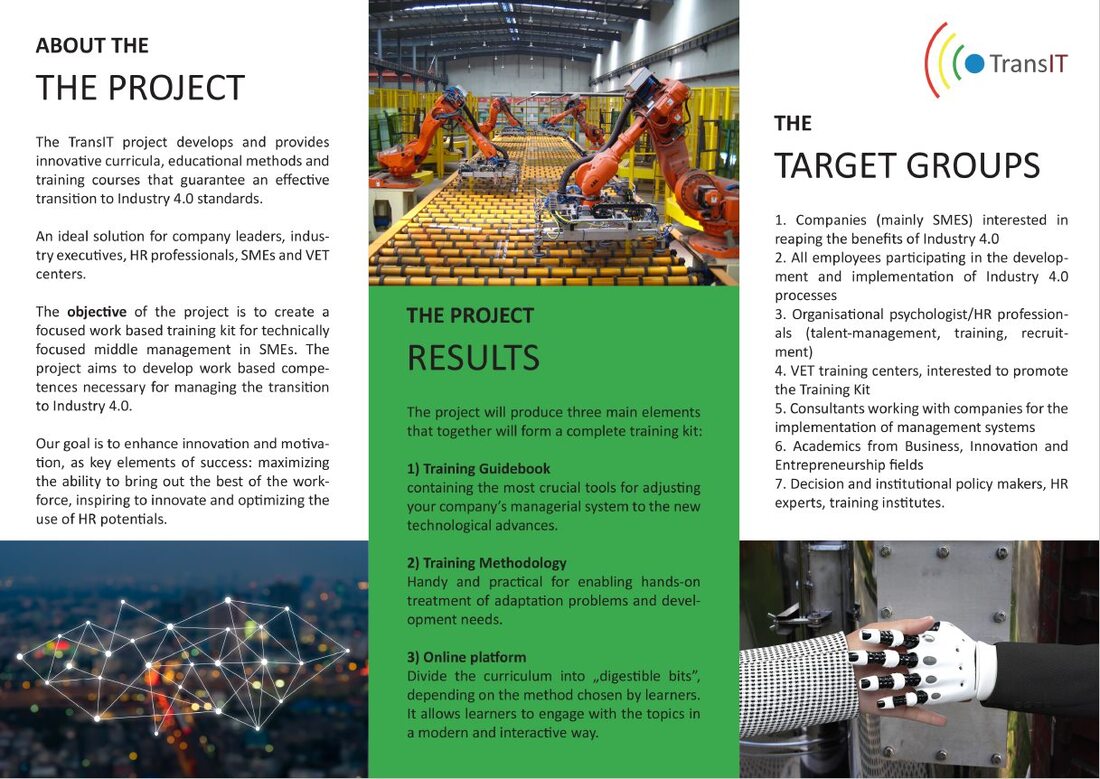
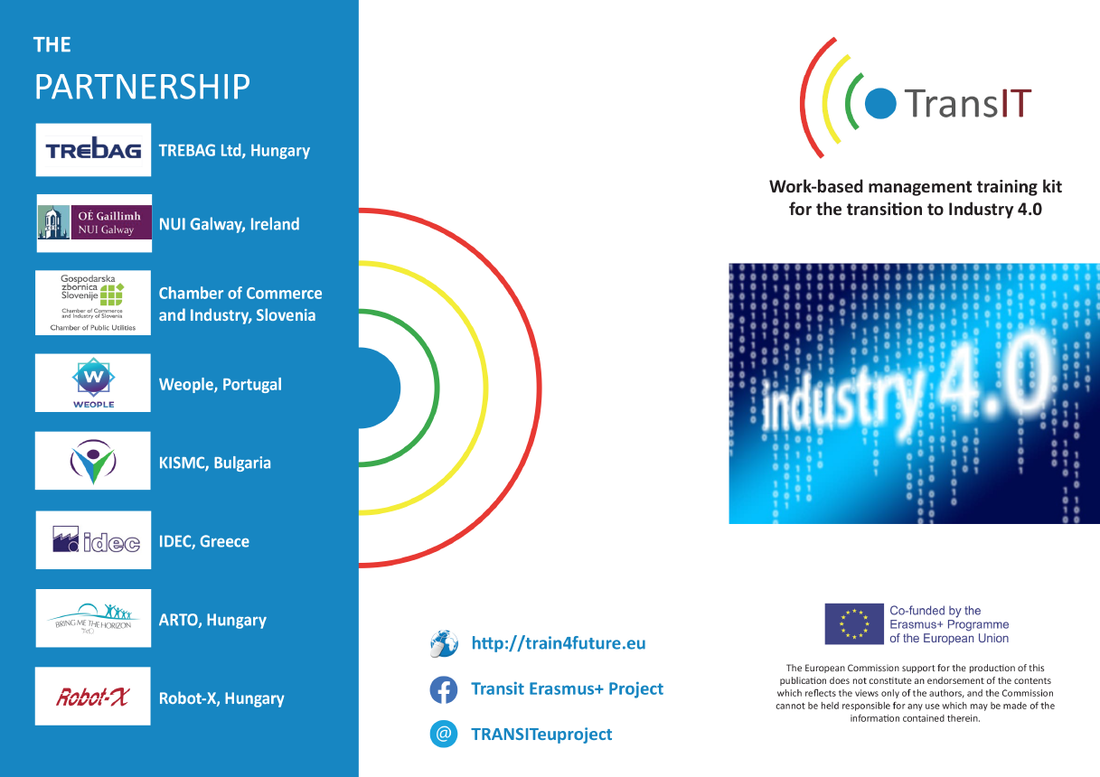











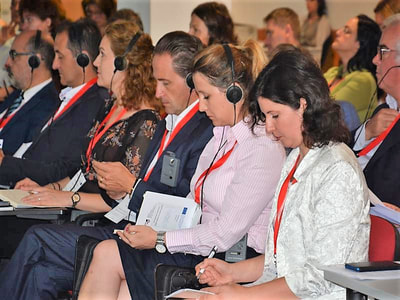
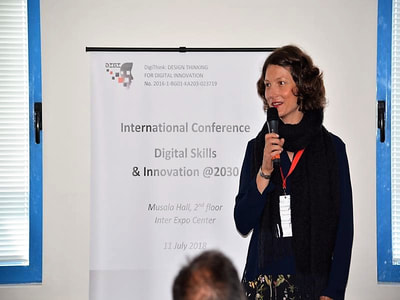
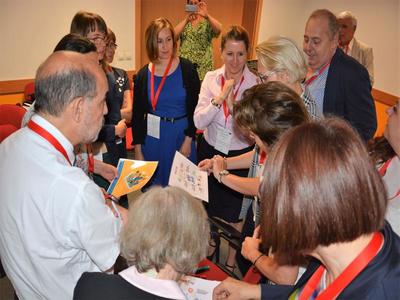
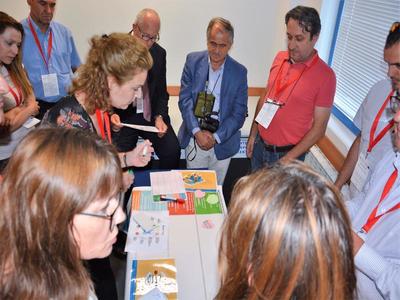
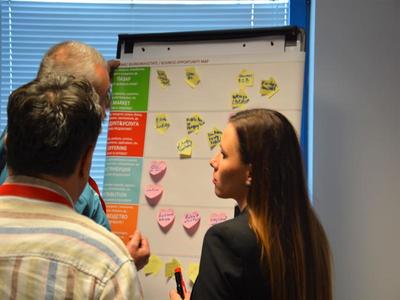
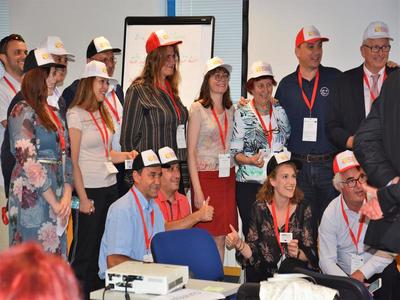
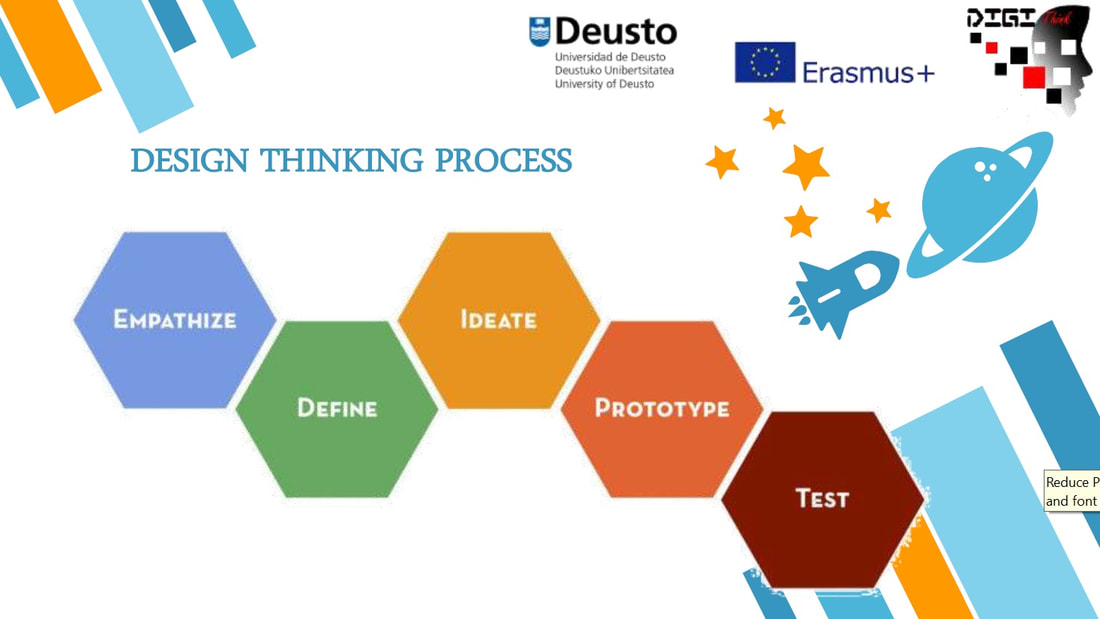
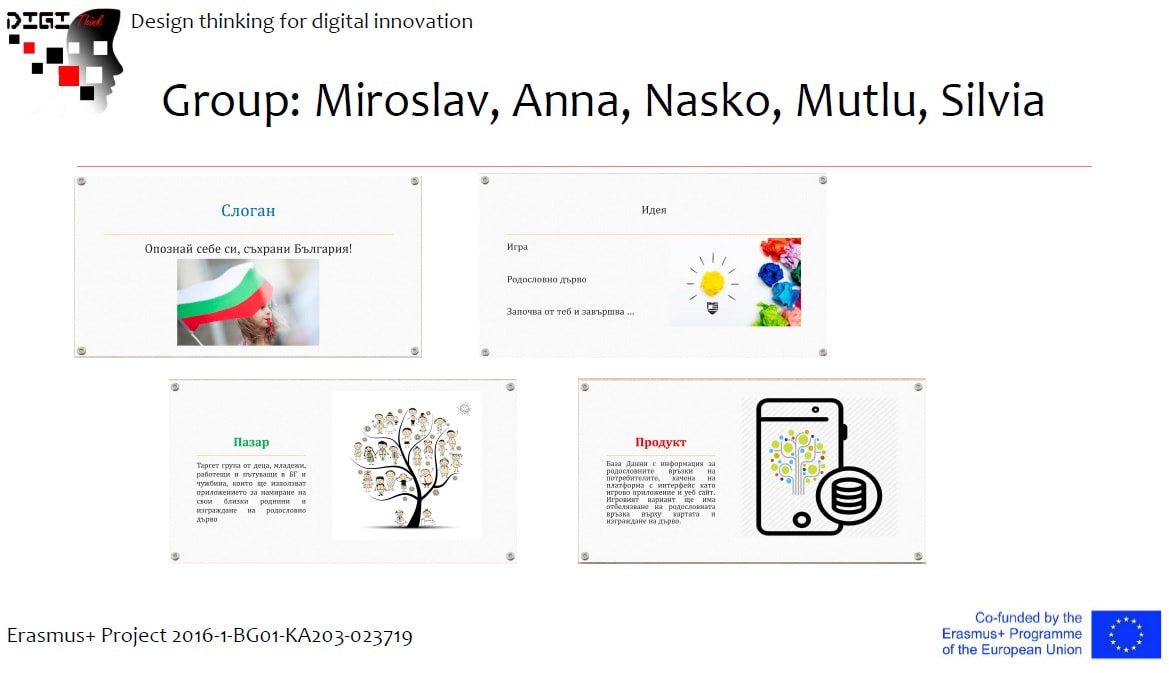
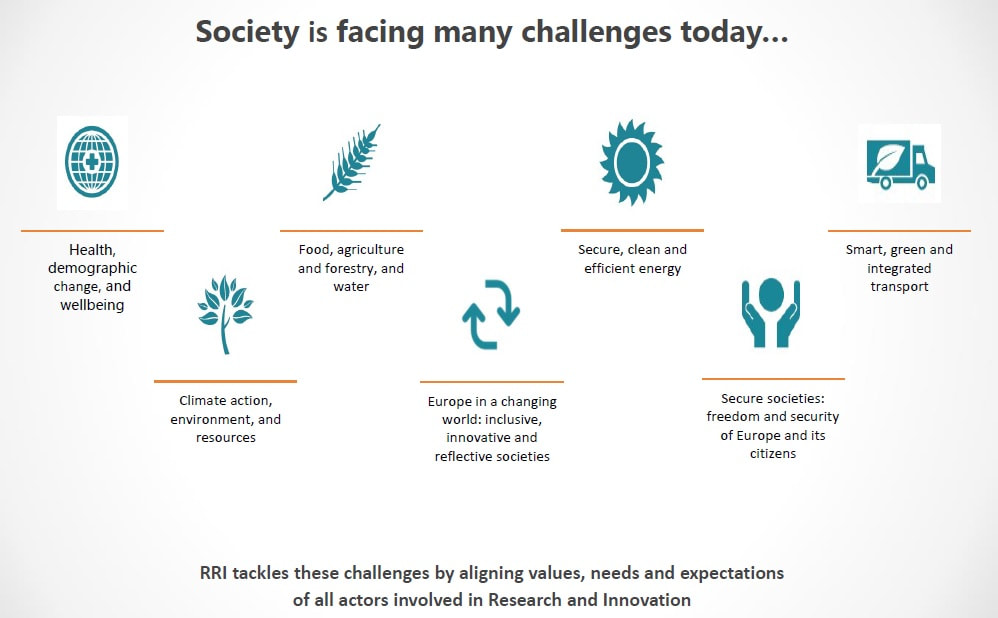
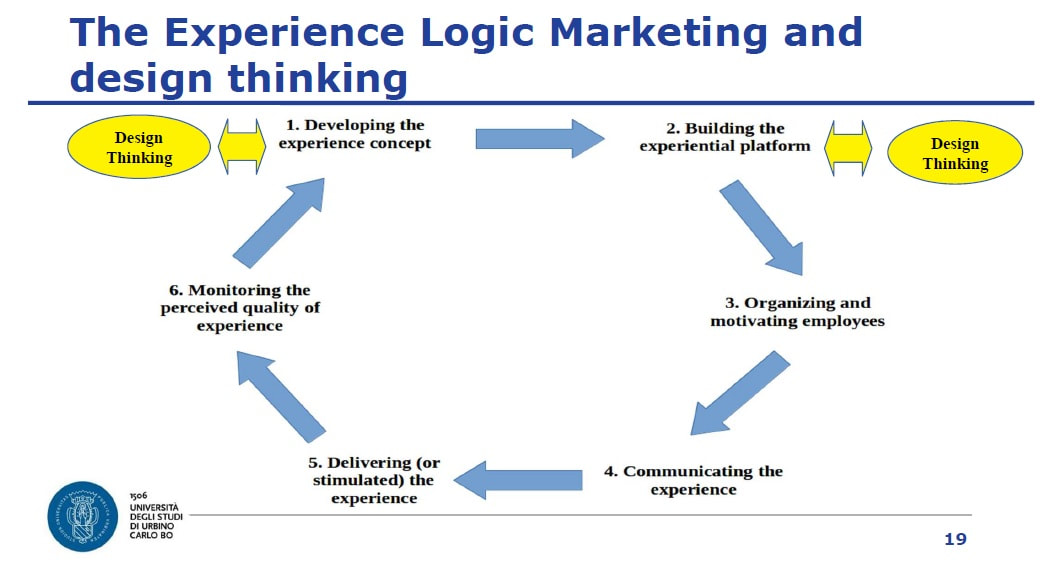
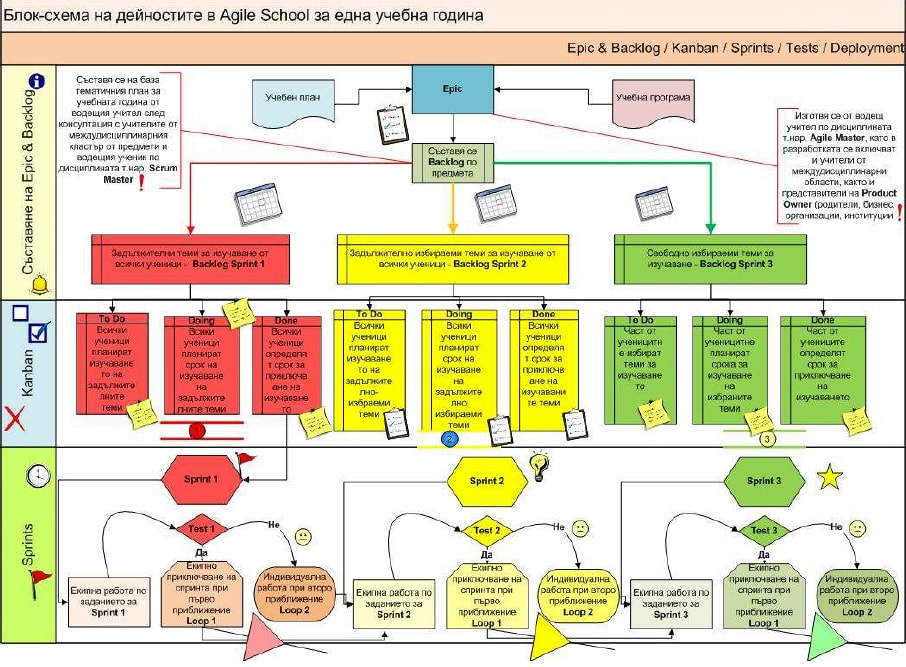
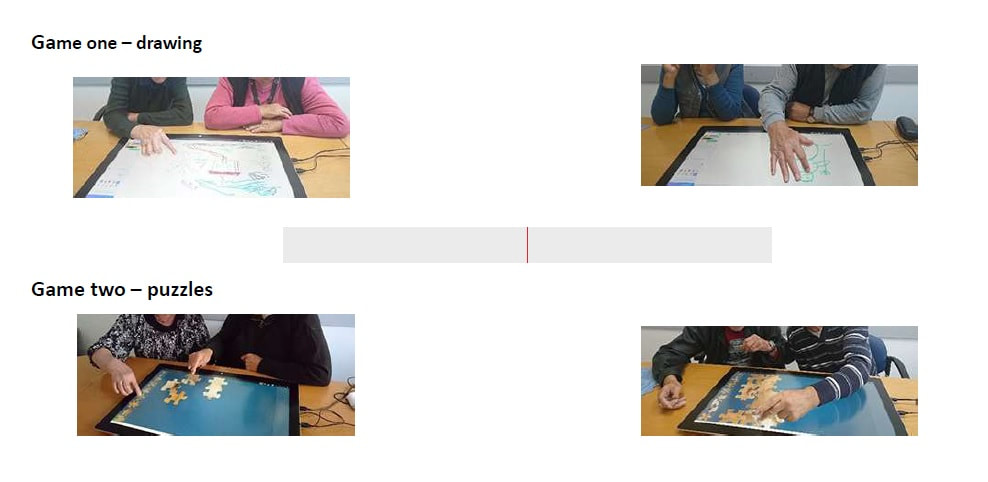
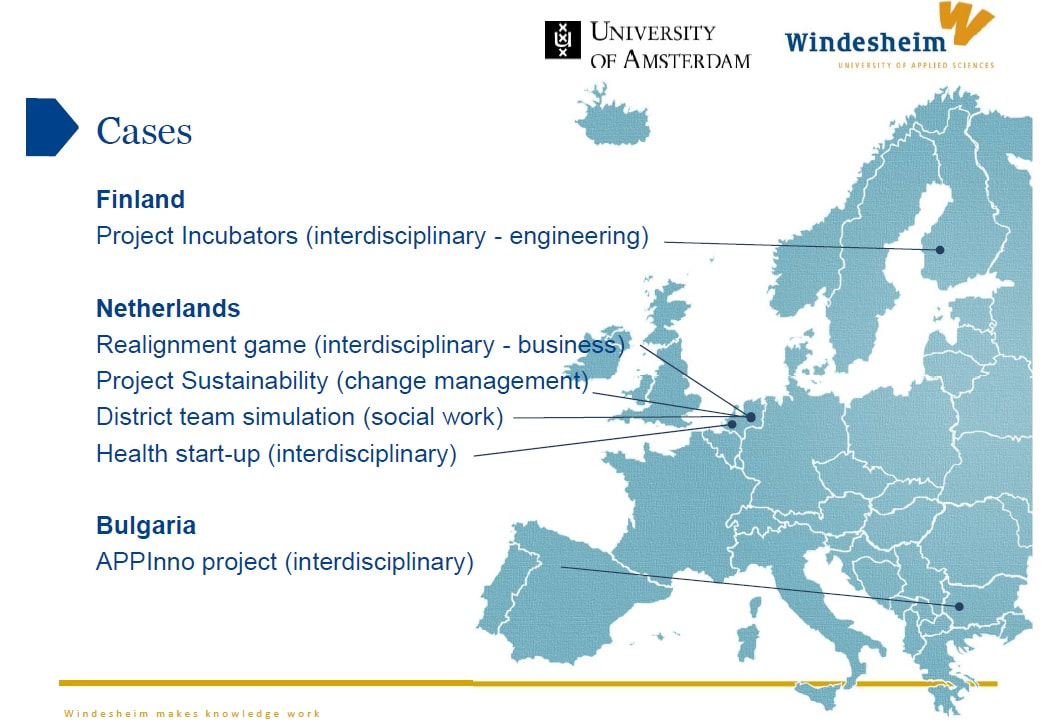
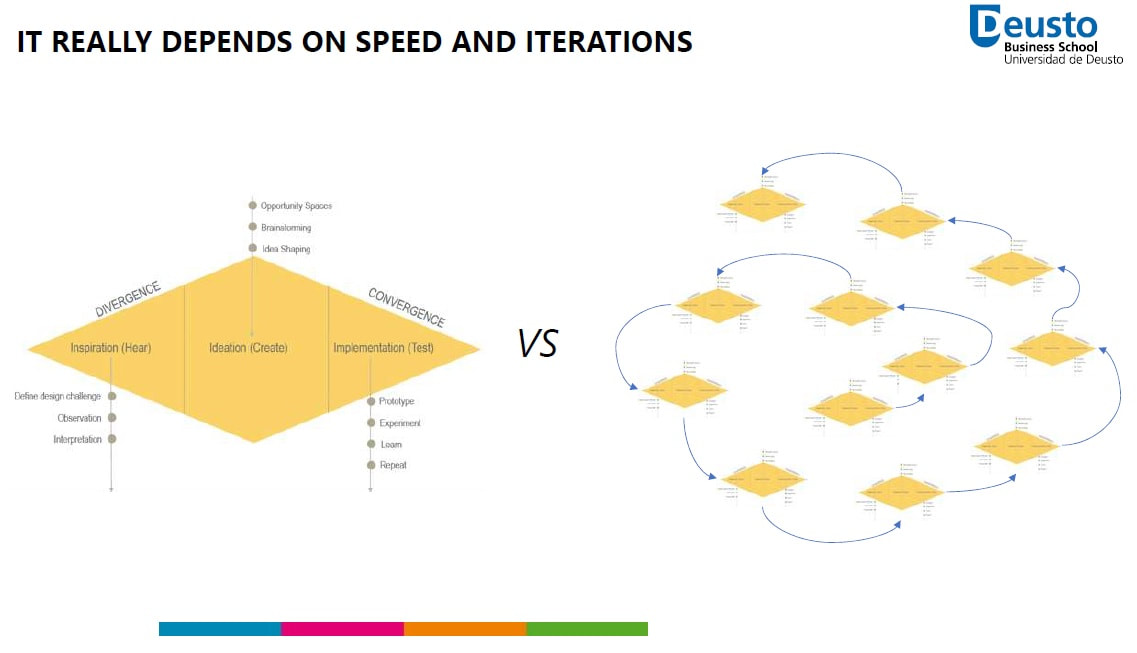
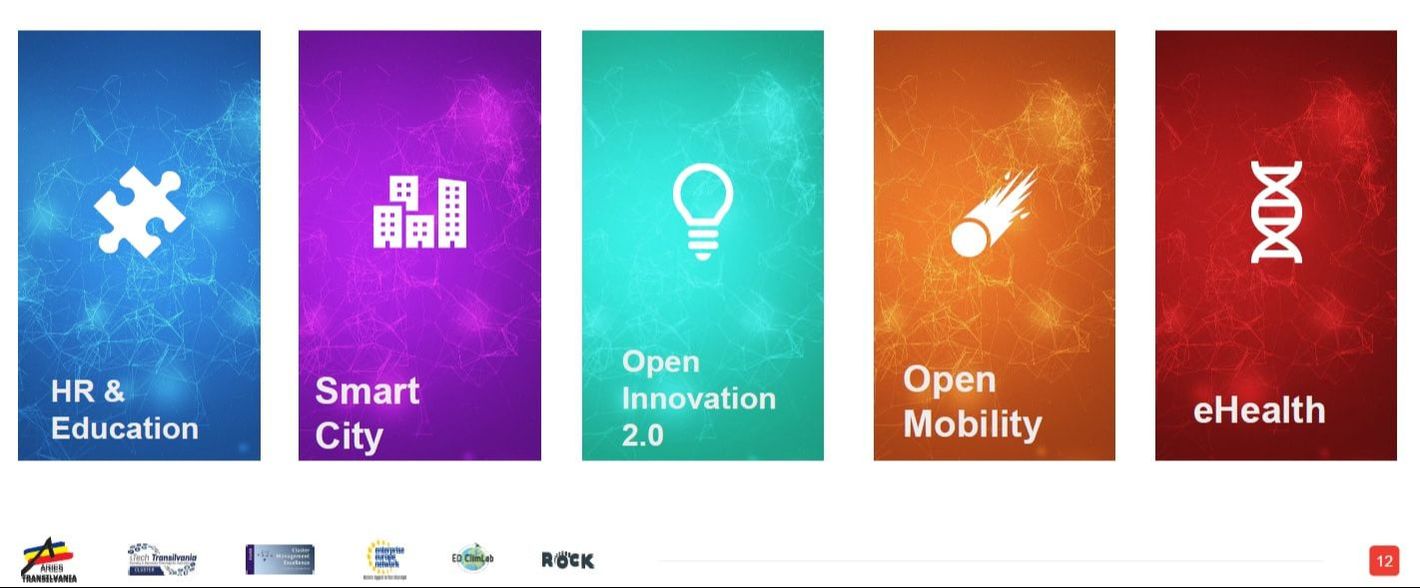
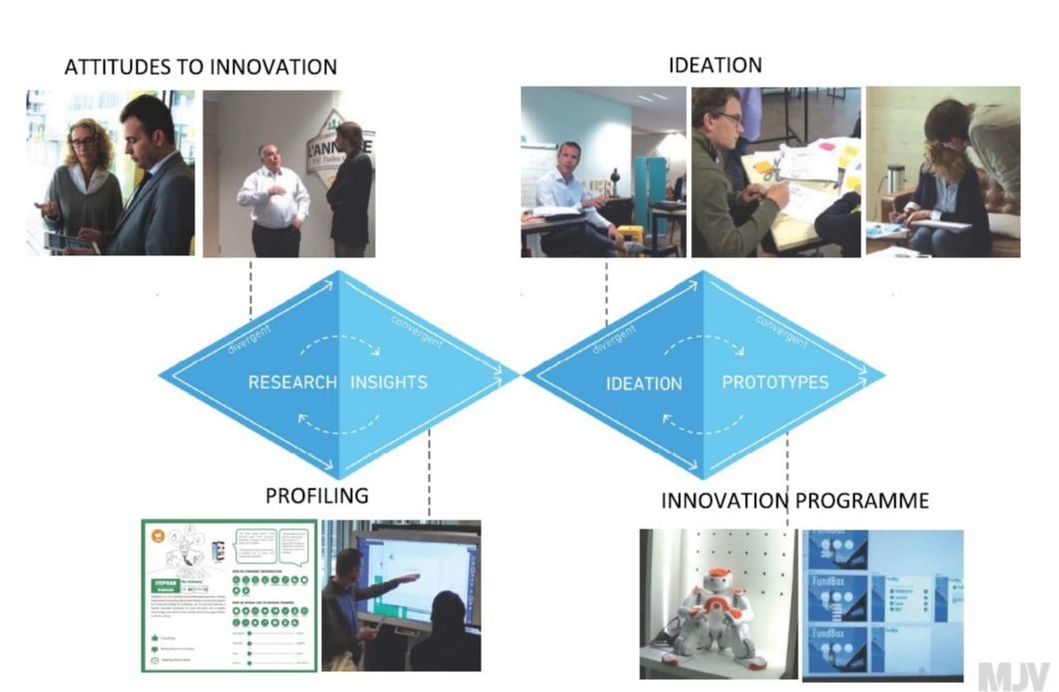
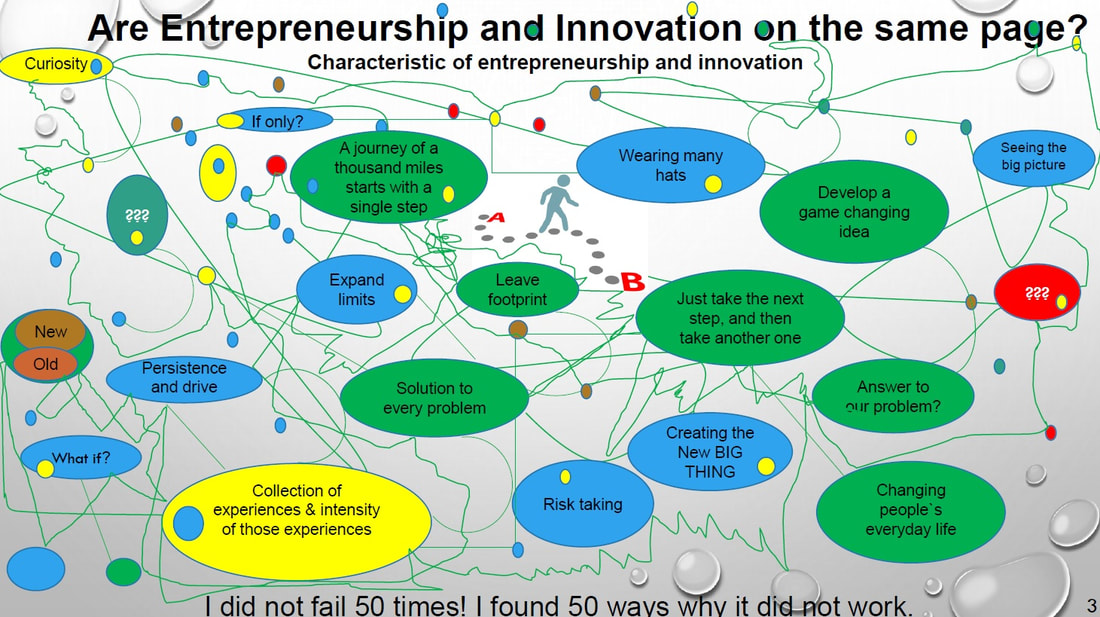
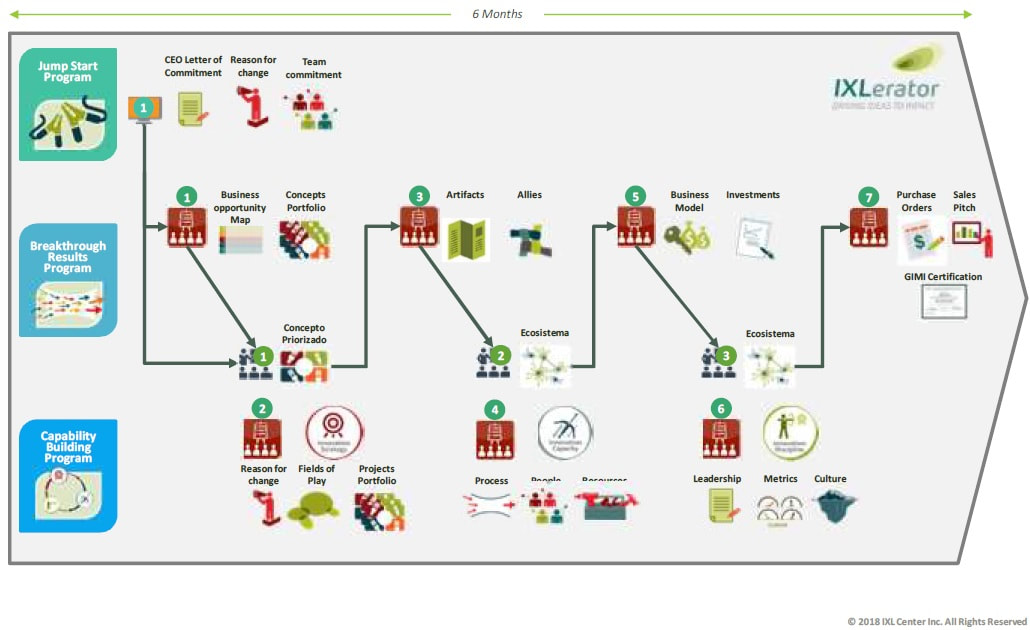
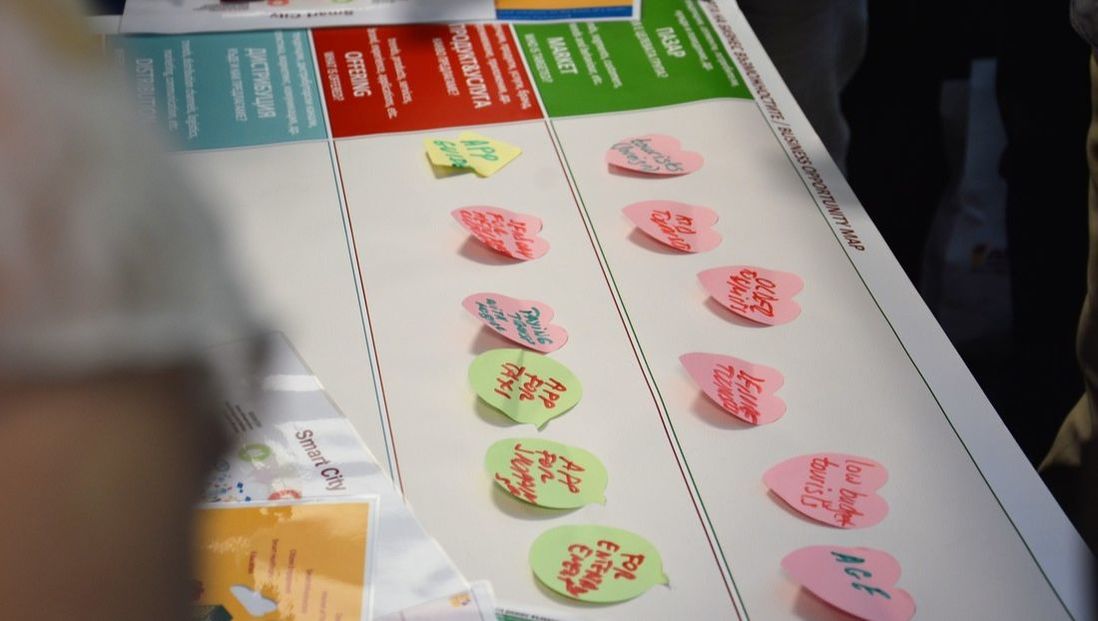





 RSS Feed
RSS Feed